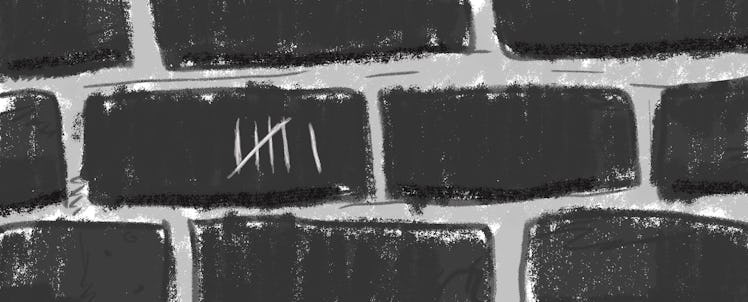Jessica Lahey: The Student I Loved and the Young Woman He Attacked
A teacher contemplates how a promising young man became something else entirely.

Dear Inmate 20162,
I became your teacher on your first day of eighth grade, and as soon as we met, in my small New Hampshire classroom, I knew you were special.
A month after we met, I told my husband that you were the kind of person I hoped my sons would become. You were kind, generous, and charismatic. I gushed about your formidable mind and unlimited potential.
I grew to admire you more as a glorious fall faded into a gray New England winter, and I started to get glimpses of the adult you could become. Adolescence had begun to carve adult angles from your round, pubescent cheeks, and you grew taller than me somewhere between Thanksgiving and the winter holiday.
As winter melted away, I began crafting your high school recommendation. Teachers and admissions officers communicate with a tacit lexicon of restrained adjectives and euphemisms, a sort of recommendation-speak used to convey students’ vices and virtues, achievements and potential. Once, maybe twice a year, a few students grant me the opportunity to depart from that coded language and write freely, enthusiastically, in a genuine language of respect and admiration.
Letters written in this language puts admissions officials on alert, it says: Pay attention, for this student has the potential to leave a permanent mark on the world.
That spring, you got into your dream high school, and the possibilities seemed spread out before you, the world at your feet.
Four years later, on a beautiful summer morning, I opened my newspaper and read that you had been arrested and charged with rape. The words “aggravated” and “sexual assault” were printed beside a photograph of you, staring straight into the police officer’s camera.
I am ashamed to say that my feelings of sadness, fear, and loss were not for the girl you’d been accused of raping, but for you.
As the details of your case unfolded in the news, and the worst could no longer be explained away, that myopic sadness gave way to intense guilt.
In the year I was your teacher, we spent nearly 500 hours together. It was my job to impart both knowledge and virtue. We contemplated the nature of character, ethics, and morality. Character was the warp on which I wove lesson plans about Achilles’ tragic rage and heroic duty, Phoenix Jackson’s fortitude down that “Worn Path,” and Sydney Carton’s redemptive sacrifice for love and a life squandered. I urged you to find empathy for Langston Hughes’ student who wrote his “Theme for English B” and Gwendolyn Brooks’ boys who left school and were real cool.
I should have been more explicit.
I taught you to find empathy for the likes of Boo Radley, Walter Cunningham, and Tom Robinson, but maybe we all would have been better off if I’d focused on the basic human duty you owed to the girl sitting next to you.
I should have deployed some of that honest, unveiled language on you and your classmates. I should have said, free from metaphor or allegory, that the blessings bestowed on you by virtue of your wealth, race, and access confer great duty as well as privilege.
I should have taught, and re-taught, the meaning of the word “no.” I should have told you that no matter how intense the peer pressure, no matter how ancient and exclusive the tradition, her life was every bit as valuable as yours. I should have told you that she was not yours to violate, that her right to physical integrity was infinitely more valuable than your bragging rights.
I should have told you: Pay attention, for you have the potential to leave a permanent mark on the world.
In nine months, your sentence will be over, and the second part of your story will begin. You can’t erase the chapters, but you can craft a new ending, in which you return to the world transformed, atoned, and changed for good.
With love,
Your Teacher
Jessica Lahey is a mother, teacher, and writer, whose work has appeared in “The Atlantic” and “The New York Times.” She is the author of The Gift of Failure: How the Best Parents Learn to Let Go So Their Children Can Succeed.
This article was originally published on